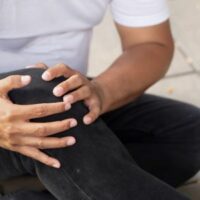Constructive Knowledge In Slip And Fall Cases

In slip and fall accidents, words like notice or foreseeability are often thrown around. But what do those words mean in the context of premises liability—in other words, the standard slip and fall case?
Actual Knowledge
Florida law makes it tougher to sue a business for a fall than you may think. Under Florida law, a business is only responsible for a foreign object, or a dangerous condition that causes a fall, that the business actually knew about or could have known about.
Of course, the first prong—actual knowledge—is obvious. A business that knows there is a spill or a substance or an object on a floor where customers or people walk, certainly has an obligation to clean or fix the area.
But usually, businesses don’t have actual knowledge. A large store doesn’t immediately know that there has been a spill in aisle 12 the minute it happens. Even if it did know, providing actual knowledge is difficult. What kind of employee will say that they knew there was spilled salt on aisle 12, but they did nothing about it?
Constructive Knowledge
That’s why constructive knowledge is so important. Constructive knowledge says that even if the store or business didn’t know about a dangerous condition, that condition existed long enough, or was obvious enough, that the business owner should have known of it if the business had exercised due diligence. The law makes an assumption that the business knew of the dangerous condition.
Let’s assume that salt did spill on aisle 12. If you fall on that salt 30 seconds after it fell or spilled, it may be hard to pin liability on the business. Most businesses don’t have to check every shopping aisle for problems every 30 seconds.
But let’s say that you fall on that salt an hour after it originally was spilled on the floor. Now, it can be assumed the store had constructive knowledge of the problem, as any reasonable property owner would know to inspect its store every hour for problems, spills, or foreign objects.
How Long Was the Object There?
How do we know how long something was on the floor before an accident happens? Usually through circumstantial evidence. Salt that is spread out, with footprint marks in it, was probably there for a longer period of time. Liquid that is muddy and spread out over a surface was probably there for a longer period of time.
Did employees walk by the condition but ignore it? Logs that stores keep of where employees are in the store, and what they were doing can help. If an employee stocked Isle 12 repeatedly, it is likely that employee saw the spill, but did nothing about it, creating constructive knowledge, and thus liability for the store.
Our Tampa personal injury attorneys can help if you were injured in a fall, or any other kind of accident. Schedule a consultation today.




